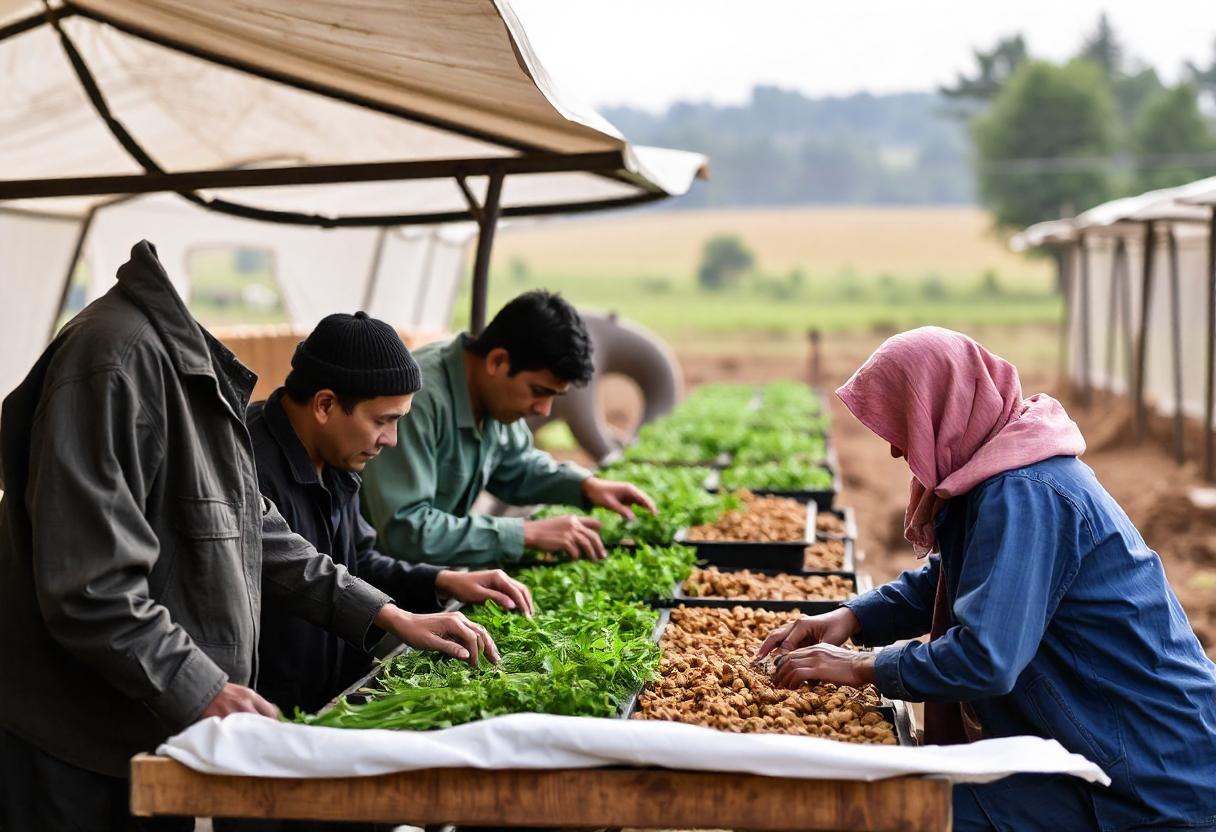
Agricultural cooperatives play a significant role in the farming sector by providing various services and benefits to their members. These organizations are formed by farmers and agricultural producers who come together to pool resources, share knowledge, and improve their economic and operational efficiency.
The Role of Agricultural Cooperatives
Agricultural cooperatives serve multiple functions in the farming industry. They facilitate bulk purchasing of inputs like seeds, fertilizers, and machinery, which helps reduce costs for individual farmers. By collectively negotiating prices, cooperatives can secure better deals than farmers could on their own. Additionally, cooperatives often provide access to advanced technologies and training, helping farmers improve their productivity and sustainability.
Benefits of Agricultural Cooperatives
One of the primary benefits of agricultural cooperatives is the ability to access shared resources. Farmers in cooperatives can benefit from collective buying power, reducing the cost of essential inputs. Cooperatives also offer marketing support, helping members reach broader markets and secure better prices for their products. Furthermore, they often provide financial services, such as credit and insurance, which can be crucial for small-scale farmers.
Types of Agricultural Cooperatives
There are several types of agricultural cooperatives, each serving different needs within the farming community.
- Production Cooperatives: These cooperatives focus on pooling resources for production purposes, such as shared equipment and facilities. Members work together to produce agricultural goods more efficiently.
- Marketing Cooperatives: These cooperatives assist members in marketing and selling their products. They may handle packaging, branding, and distribution, helping farmers reach larger markets and achieve better prices.
- Supply Cooperatives: These cooperatives provide farmers with essential supplies, such as seeds, fertilizers, and pesticides. By purchasing in bulk, they can offer lower prices and better availability of inputs.
- Service Cooperatives: These cooperatives offer specialized services, such as technical support, research, and training. They help farmers adopt new technologies and practices to enhance their operations.
Challenges Faced by Agricultural Cooperatives
Despite their benefits, agricultural cooperatives face several challenges. Managing a cooperative requires effective governance and strong leadership to ensure that all members’ interests are represented. Additionally, cooperatives must navigate financial and operational risks, including market fluctuations and changing agricultural policies. Ensuring that all members contribute fairly and benefit equitably can also be a challenge.
The Future of Agricultural Cooperatives
The future of agricultural cooperatives looks promising, with increasing interest in sustainable and cooperative farming practices. As agriculture evolves, cooperatives are likely to play a key role in supporting farmers through innovations in technology and management practices. By adapting to new trends and addressing existing challenges, agricultural cooperatives can continue to provide valuable support to the farming community.